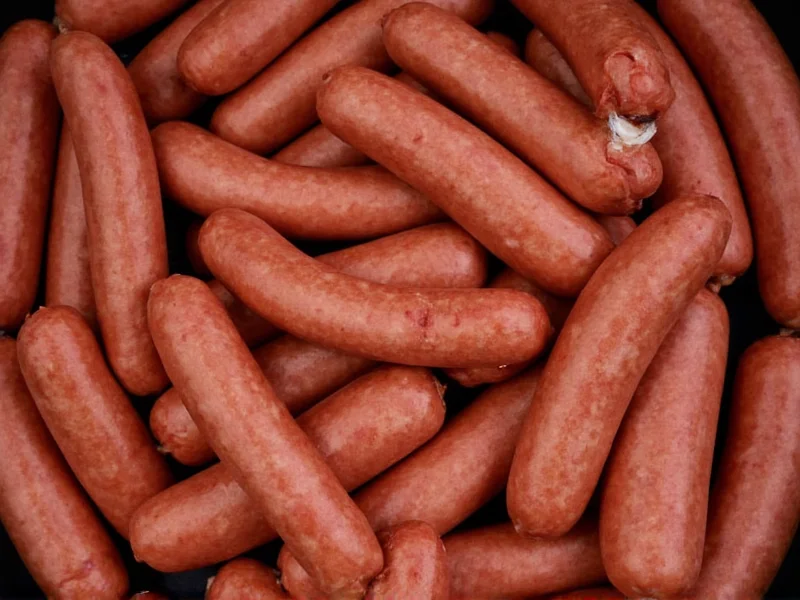The animated film Sausage Party revolutionized adult animation with its satirical take on consumer products living sentient lives inside a supermarket. Among its memorable cast, the character Douche stands out as both a clever pun and a critical narrative device. This bottle of feminine hygiene product, with his distinctive voice and manipulative personality, serves as the main antagonist who controls information about the 'Great Beyond'—the grocery items' term for the human world.
Understanding the Douche Character
Douche isn't just a one-dimensional villain; he represents institutional control and the manipulation of truth. His character design cleverly incorporates visual elements that hint at his role in the supermarket hierarchy. Positioned prominently on the store shelves, Douche maintains order among the other products by spreading misinformation about what happens when items are purchased.
What makes Douche particularly significant is how he embodies the film's central themes. The movie uses grocery items as metaphors for religious belief systems, with Douche functioning as a false prophet who prevents the other products from discovering the truth about their existence. His character arc reveals how those in power often manipulate information to maintain control—a concept that resonates beyond the film's comedic surface.
Character Development and Narrative Function
Throughout Sausage Party, Douche's role evolves from a seemingly benevolent leader to the primary obstacle in the protagonists' journey. His interactions with Frank (the sausage protagonist) and Brenda (the bun) drive much of the film's conflict. The character's manipulation tactics include:
- Spreading fear about the 'Great Beyond'
- Creating rituals to maintain order
- Eliminating products that question the established narrative
- Using selective information to control the community
These behaviors mirror real-world power structures, making Douche more than just a comedic character—he's a vehicle for the film's social commentary. The writers cleverly use his product type to enhance his role as an 'outsider' within the grocery ecosystem, which explains his motivation to maintain control over the other items.
| Aspect | Details |
|---|---|
| Character Name | Douche |
| Product Type | Feminine hygiene product |
| Voiced By | Nick Kroll |
| Role in Film | Primary antagonist |
| Significance | Controller of information about the 'Great Beyond' |
Behind the Voice: Nick Kroll's Performance
The character's impact owes much to Nick Kroll's distinctive voice performance. Known for his work on Big Mouth and Kroll Show, Kroll brings both comedic timing and subtle menace to the role. His delivery of lines like 'The Great Beyond is a lie!' became one of the film's most memorable moments.
Kroll's casting exemplifies how Sausage Party assembled an impressive voice cast that included Seth Rogen, Kristen Wiig, and Michael Cera. The filmmakers specifically sought actors who could deliver both comedy and emotional depth, recognizing that the film's satirical elements required strong vocal performances to sell its more serious themes.
Cultural Context and Reception
When Sausage Party premiered in 2016, critics noted how Douche represented more than just crude humor. Film analysts highlighted how the character functioned within the movie's broader commentary on:
- Religious dogma and institutional control
- Consumer culture and brand loyalty
- The psychology of information control
- Social hierarchy within confined systems
While the film's explicit content drew attention, scholars and critics recognized its sophisticated satire. Douche's character specifically demonstrated how the film used seemingly juvenile humor to explore complex ideas about truth, power, and belief systems. This layered approach helped Sausage Party achieve both commercial success and critical recognition beyond typical adult animation.
Why the Douche Character Matters
Beyond the immediate comedy, Douche serves as a crucial element in Sausage Party's exploration of how information control functions in society. The character's manipulation tactics—fear-mongering, ritual creation, and elimination of dissenters—mirror real-world mechanisms used by various institutions throughout history.
What makes this particularly effective is how the film uses a seemingly absurd premise to examine serious concepts. By making Douche a hygiene product rather than a more traditional authority figure, the film cleverly subverts expectations while maintaining its satirical edge. This approach allows Sausage Party to address philosophical questions about truth and belief through the lens of grocery items, making complex ideas accessible through humor.











 浙公网安备
33010002000092号
浙公网安备
33010002000092号 浙B2-20120091-4
浙B2-20120091-4